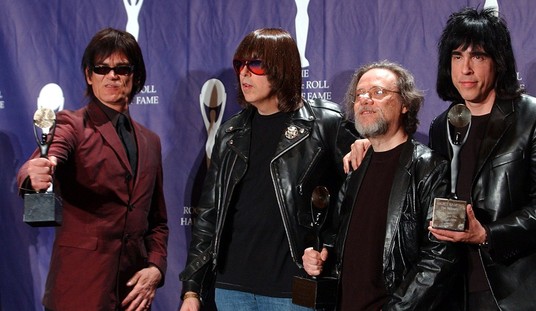This is an interesting story mostly because of what it says about experts. Tania Singer is a recognized expert on the science of empathy. She’s also a proponent for the positive influence of meditation to achieve more empathy. From Science magazine:
Singer, the daughter of celebrated neuroscientist Wolf Singer, helped found a new field called social neuroscience; she rose to prominence with her work on empathy, including a landmark study published in Science in 2004 that showed watching a loved one experience pain activates the same brain areas as feeling physical pain directly. In 2013, she started a hugely ambitious study, The ReSource Project, in which 160 participants were trained for 9 months to demonstrate the power of meditation.
The study highlighted some of Singer’s strengths, colleagues say. “She’s creative, she can be charming, she knows how to make contacts and get resources. It’s a gift and it was necessary to make a project like this happen,” one colleague says. “Her superpower is vision,” another adds. “That original team of people that she put together was totally incredible.” Several people in her lab recall an impassioned speech Singer gave after the 2015 terrorist attacks in Paris, in which she argued that only a study like ReSource could prevent such acts in the future.
But while Singer appears to have had some ambitions to change the world through empathy, she’s also allegedly a really terrible boss. Not the forgetful, unfocused kind of boss but the hyper-critical, scream-until-you’re-in-tears kind of boss. According to 8 researchers who worked with her at the Max Planck Institute for Human Cognitive and Brain Sciences in Leipzig, Germany, Singer would get particularly angry at pregnant women:
The researchers, all but one of whom insisted on remaining anonymous because they feared for their careers, describe a group gripped by fear of their boss. “Whenever anyone had a meeting with her there was at least an even chance they would come out in tears,” one colleague says…
She wanted to be in control of even the most minute research details but was often not available to discuss them. In-person meetings could quickly turn into a nightmare, one colleague says: “She gets extremely emotional and when that turns dark it is terrifying.” Another co-worker describes what happened after he told Singer some people in her group were unhappy: “She was very hurt by this and started crying and screaming,” he says. “It escalated to the extent that she left the room and went door to door in the institute in our department, crying, yelling to the people in the room ‘Are you happy here?’ When she came back, she said: ‘I just asked and everyone said they’re happy so it’s obviously you that’s the problem.’” (A colleague who says he was present corroborates the story.)
Almost every current or former lab member brought up Singer’s treatment of pregnant women; the issue was also on a list of grievances, shared with Science, that lab members say they drew up after a meeting with the scientific advisory board in February 2017 to record what was said. “Pregnancy and parental leave are received badly and denied/turned into accusations,” the notes say.
Bethany Kok, a former lab member who agreed to speak on the record because she is no longer working in neuroscience, says Singer reacted kindly when she first told her she was pregnant with twins. But the next day, Kok says, “She started screaming at me how she wasn’t running a charity, how I was a slacker and that I was going to work twice as hard for the time I would be gone.” A few weeks later, Kok says, she miscarried one of the twins and missed a lab meeting for an urgent medical appointment. “I got an email from Tania telling me that she wasn’t paying me to go to the doctor, that clearly I wasn’t using good judgment, and I was no longer allowed to go to the doctor during work hours.” (Kok says she no longer has access to the email.)
Singer is currently on a one-year sabbatical following a series of mediation meetings with the staff which apparently didn’t go very well, but her employer plans to allow her back once the sabbatical is over. The LA Times points out Singer isn’t the only academic who has been accused of bullying behavior in the workplace:
In March, the Boston Globe reported that psychiatrist Bessel van der Kolk was fired from his post as medical director of the Brookline Center, where he had worked for 35 years, for allegedly bullying and denigrating employees. His 2014 book, “The Body Keeps the Score: Brain, Mind, and Body in the Healing of Trauma,” has been celebrated by experts and laypeople alike; the New York Times ran a 7,000-word profile of Van der Kolk in advance of its release.
Expertise in something doesn’t automatically confer the ability to benefit from that expertise. I suppose that’s why we have wealthy millionaires who are experts on socialism and people with private jets who are experts in reducing your carbon footprint. There are lots of those around.
Ultimately, the lesson I take from this is that one can have lots of big ideas about how to make the world a better place and some of those ideas may even be true. And yet, our actual lives don’t always match up to our own big idea, much less to those someone else is trying to foist on us. That’s not an argument against science or research, but it is an argument against the idea that making the world a paradise is as easy as becoming an expert (or, even easier, citing one we agree with) in some field with broad implications. Things just don’t work that way in real life.








Join the conversation as a VIP Member